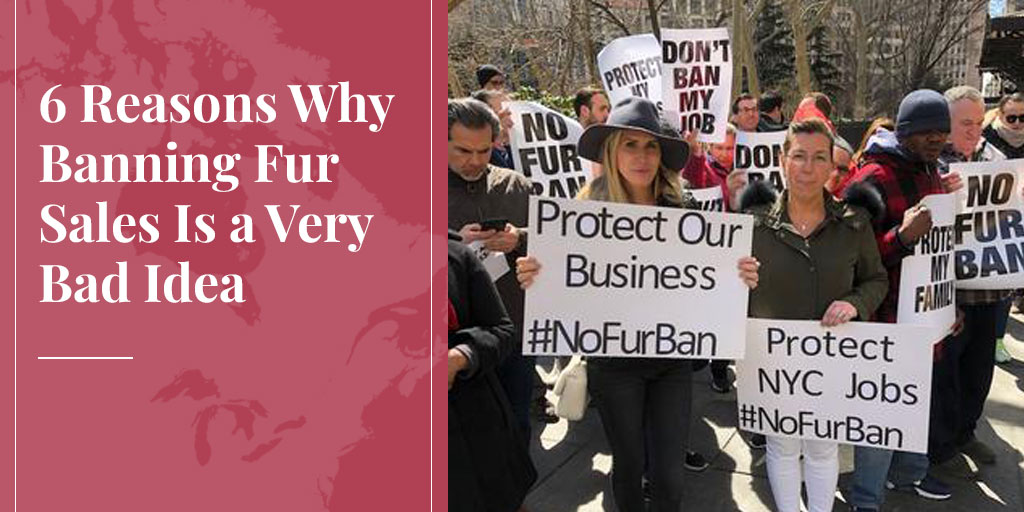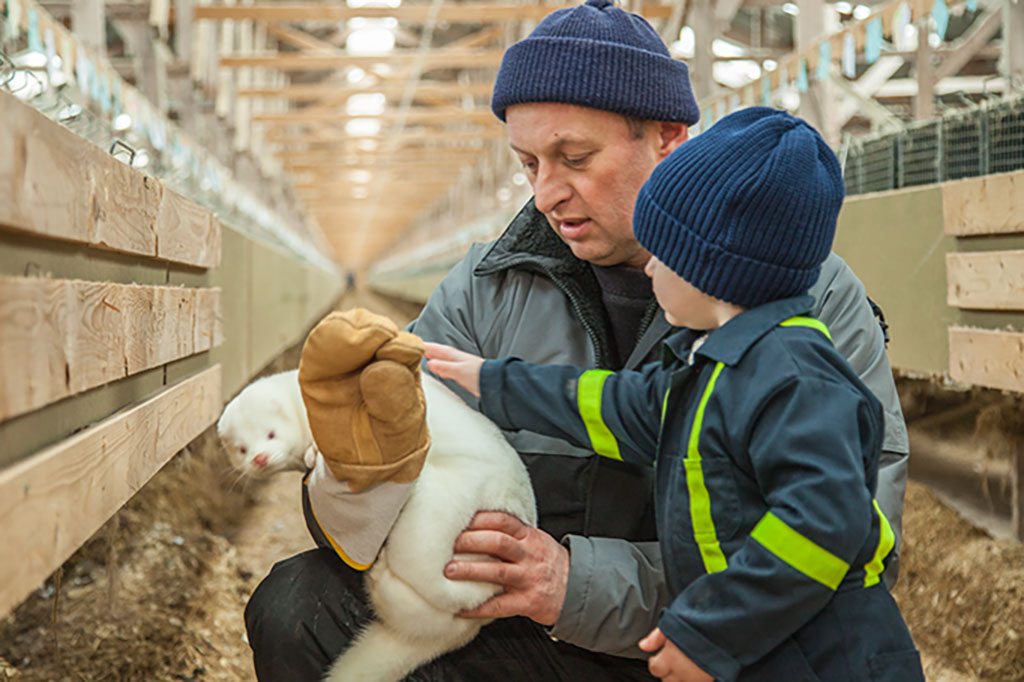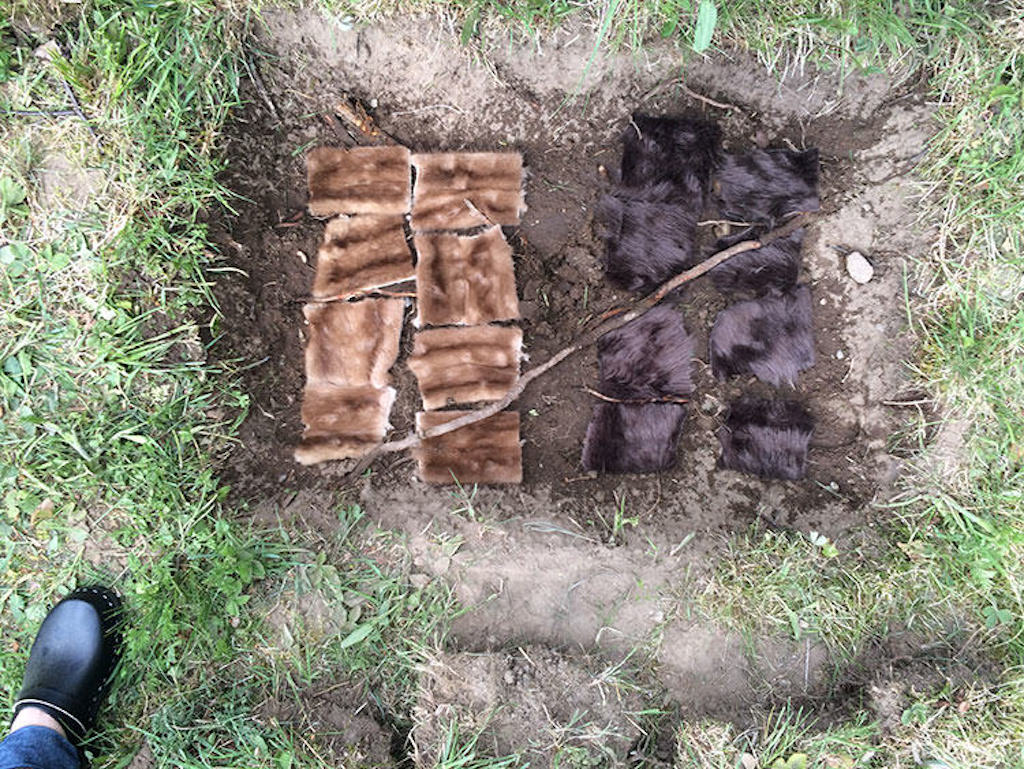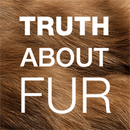
Recent proposals by Los Angeles, San Francisco, and now New York city councilors to ban fur sales should not only worry furriers who risk losing their jobs and businesses. These proposals should be a matter of grave concern to anyone who values living in a free, fair and tolerant society.
There are so many things wrong about the proposed bans on fur sales that it is hard to know where to begin, but let’s look at six of the most important problems:
SEE ALSO: New York fur ban: Furriers fight to save sustainable industry.
1. These proposals to ban fur sales are a flagrant example of arbitrary government infringement on fundamental human rights. No one is forced to wear fur, and animal activists are free to campaign against the fur trade, but this does not give them the right to impose their personal beliefs on others. After decades of anti-fur campaigning, many people still clearly want to buy fur. The activist response is to seek legislation that would take away our right to choose for ourselves. This should have alarm bells ringing on all sides of the political spectrum!

2. It is illogical and discriminatory to consider banning fur sales when 95% of Americans eat meat and wear leather. Of course, PETA and other “animal rights” groups that are lobbying to ban fur sales are equally opposed to any use of animals, even for food. But most North Americans do not accept this extreme view; most of us believe that humans do have a right to use animals for food, clothing and other purposes, so long as these animals are treated responsibly. There is no justification for banning fur sales while hundreds of millions of cows, pigs and sheep, and several billion chickens, are killed each year for food in North America. Even philosopher Peter Singer stated in his landmark Animal Liberation – the book that launched the animal-rights movement – that it is completely hypocritical to campaign against the fur trade while most Americans continue to eat meat, eggs, fish and dairy.

3. As a society we do, of course, sometimes restrict personal choice, but only for very important reasons. To ensure that animals will be there for us in the future, for example, we ban trade in endangered species. But endangered species are never used in the fur trade; all the furs we use today are raised on farms or culled from abundant wildlife populations. This is assured by state, national and international regulations. Animal welfare must also be respected — and decades of scientific research and government regulations ensure that fur today is produced responsibly and humanely. Trapping in North America is regulated by state (in Canada, provincial) wildlife authorities, in accordance with ISO standards and the Agreement on International Humane Trapping Standards. Fur farms are being inspected and certified to ensure compliance with codes of practice developed by veterinarians and animal scientists. There is simply no credible evidence that fur animals are treated less respectfully than other animals we use for food or clothing.
4. Wildlife populations often must be culled to protect property and human (and animal) health, whether or not we use their fur. Overpopulated beavers flood homes, farms and roads; raccoons and foxes spread rabies and other diseases; coyotes are the main predators of lambs and calves – and now attack pets and even people in urban areas; predators must also be managed to protect sea turtle eggs and other endangered species; and the list goes on. But if we must cull some of these animals, surely it’s more ethical to use the fur than to throw it away.

5. The fur trade supports livelihoods and cultures, especially in rural and remote regions where alternate employment may be hard to find. We all care about nature, but most of us now live in cities; indigenous and other trappers are our eyes and ears on the land, the people who monitor wildlife on a daily basis and can sound the alarm when nature is threatened. Fur farms provide employment in regions where the soil is too poor for other agriculture, helping to support rural communities. Fur artisans maintain handicraft skills that have been passed down from generation to generation. In this age of mass-production, each fur garment and accessory is still made individually, by hand. The fur trade maintains a range of remarkable skills and knowledge, a part of our human heritage that should be respected and encouraged, not persecuted with bans based on hateful and misleading propaganda.
6. Finally – and certainly not least – fur apparel is a long-lasting, natural material that is recyclable and completely biodegradable. After many decades of use, your fur can be thrown into the garden compost where it returns to the Earth. By contrast, most clothing today is made from petroleum-based synthetics that do not biodegrade. Instead, these synthetics leach thousands of plastic micro-particles into our waterways every time they are washed – plastic that is now being found in oysters and other marine life. It is bizarre at a time when we are trying to reduce our use of plastic – for example, by banning the use of plastic bags and water bottles – that some cities would even consider banning a long-lasting, recyclable and biodegradable natural material like fur!
SEE ALSO: Fur bans: Society has much more to lose than fashion.

As this quick review shows, recent proposals to ban fur sales are anything but “progressive”. They would unjustifiably usurp our right to use a sustainably produced, natural and biodegradable clothing material. They are arbitrary and discriminatory, especially in a society where most people eat meat and wear leather. They are completely unjustified because the modern fur trade is extremely well-regulated to ensure environmental sustainability and the responsible treatment of animals. And they would unfairly attack the livelihoods and cultures of thousands of people who maintain heritage craft skills and a close relationship with the land.
Again: no one is forced to wear fur. But everyone should be concerned about these misguided proposals to take away our right to make up our own minds about very personal and complex ethical choices.
********
What you can do to help! Make your voice heard at: www.ShoppersRights.org











Look, I understand your decision, your choice.
I honestly think it NEEDS to go, these animals are commonly SKINNED ALIVE for their fur. The standard Industry way of killing a Fox is ANAL ELECTROCUTION, Chinchillas necks are snapped while still conscious. Ironic thing about “Sustianability” is fur Farming is HORRIBLE for the environment, mostly every fur farm tosses the bodies of the animals in a GIANT pile, which is HORRIFIC for the environment. Not only that, but “Culture” is a very dumb excuse for animal torture, I am native American, a Choctaw, and mainly all native Americans HATE how fur is advertised, we NEEDED it for warmth, but people who don’t live in freezing weather buy it for fashion (nearly everyone.)
And another thing, It’s DANGEROUS to us, fur coats are sprayed with VERY toxic chemicals to prevent your fur from discinagrating in your closets. We don’t CARE how “Bad” it is for the environment, it’s animal TORTURE, and ABUSE. There’s NO way to get fur ethically, we need meat but we don’t need FUR, you don’t live in the ARTIC. If y’all wanna whine and cry so much about Fur being banned, beg the government to change the way animals are treated at Fur Farms. Have compassion, Animal’s living in TORTURE is WAY more important than CULTURE.
So much of what you say is highly debatable, or downright false. Just to cite one example, there are compelling reasons why animals are NOT skinned alive in the fur trade.It’s sad that there is so much fabricated misinformation out there about how the fur trade operates.
I believe that banning the fur trade would hand that business to the European. I would put business out of business and their employees out of work. There is no logical reason to do this. This movement is done by a few who wish to put the wants ahead of the wishes of the majority
One of the main reasons the climate is changing is that there are simply to many people on this earth. We are destroying many other forms of life on this planet. People should not be allowed to have 12 children.
Truth About Fur doesn’t have an official position on this, but on a personal level I totally agree. All of the problems we face today are made worse by overpopulation.